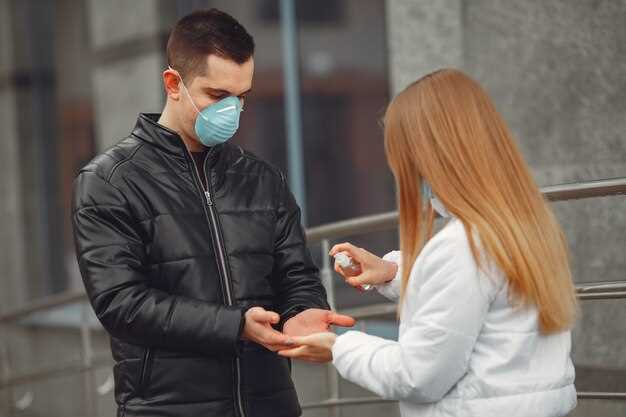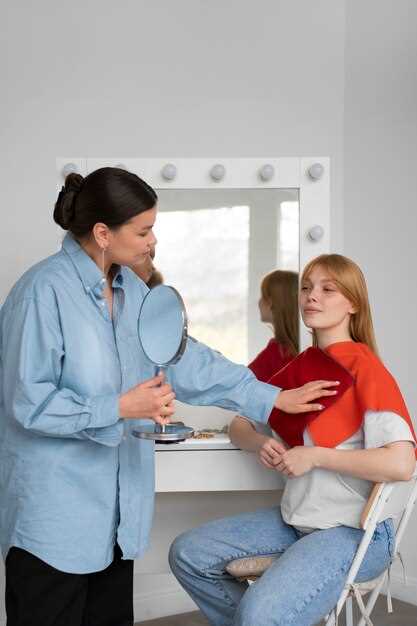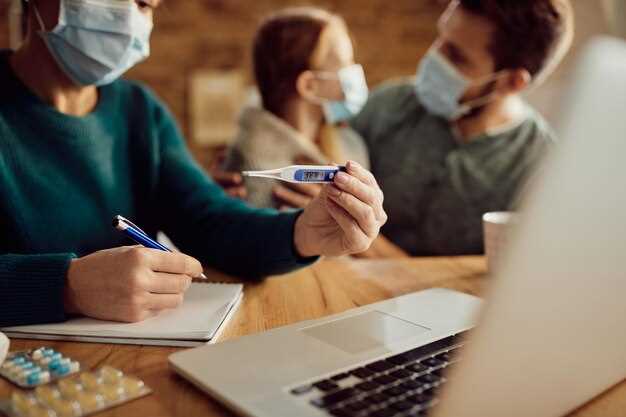
Getting tested for sexually transmitted diseases (STDs) is an important part of maintaining sexual health. Regular testing helps detect infections early, ensuring timely treatment and preventing further transmission. If you’re wondering where to get tested for STDs in your area, it’s easier than you think to find a local clinic that offers the services you need.
Local health clinics, private doctor’s offices, and even mobile testing units offer a range of STD testing options. Many of these facilities provide confidential and affordable services, allowing individuals to take control of their health without facing barriers. In this article, we will explore how to locate nearby testing centers, what to expect during the process, and how to make informed decisions when choosing a facility.
Understanding where to get tested is crucial for anyone sexually active. Many people are unaware of the different testing options available to them or feel uncertain about the process. Knowing your options can help alleviate stress and ensure you’re taking the necessary steps to protect your health and the health of your partners. Don’t hesitate to seek help if you’re unsure about where to go or what testing entails.
How to Locate STD Test Centers
Finding an STD test center nearby is a simple process. There are several ways to locate testing facilities in your area, whether you prefer a local clinic, a private doctor’s office, or a specialized center. Below are the most effective methods for finding STD test centers:
- Use Online Search Tools: Many websites allow you to search for nearby STD testing centers based on your location. These tools can help you find clinics, doctor’s offices, and even mobile testing services.
- Check with Your Primary Care Provider: If you have a primary care doctor, ask them for recommendations on local testing centers. They can provide a list of trusted facilities in your area.
- Visit Health Department Websites: Many local or state health departments provide resources for STD testing, including a list of available clinics offering free or low-cost services.
- Call Local Health Clinics: Contact your nearest clinic directly and inquire about the STD testing services they offer. Many clinics provide confidential testing on a walk-in basis or by appointment.
- Check with Community Health Organizations: Some non-profit organizations focus on sexual health and offer free or affordable testing. These organizations often provide resources and guidance on where to get tested.
Using these methods, you can easily find a nearby testing facility that meets your needs and preferences. Whether you’re looking for a specific test, need a certain level of privacy, or are seeking affordable options, there are plenty of resources to help you take the next step in your sexual health journey.
Finding Nearby Health Clinics for Screening

Finding nearby health clinics for STD screening is straightforward and can be done using various methods. Many clinics offer comprehensive services, including testing for a range of sexually transmitted infections. Below is a list of common resources and ways to find these clinics:
Each option has different features in terms of pricing, confidentiality, and testing availability. It’s important to contact these clinics in advance to confirm the tests they offer, hours of operation, and whether appointments are necessary. By using these resources, you can easily locate a nearby clinic that suits your needs for STD screening.
Why Regular Testing Is Important
Regular STD testing is a crucial aspect of maintaining sexual health. It helps detect infections early, which can prevent serious health issues and stop the spread of STDs to others. Getting tested regularly ensures that you stay informed about your health status, even if you don’t show symptoms.
Many sexually transmitted infections, such as chlamydia, gonorrhea, and HIV, can be present without noticeable symptoms. Early detection allows for timely treatment, reducing the risk of complications like infertility or organ damage. For example, untreated HIV can lead to acquired immunodeficiency syndrome (AIDS), which is much harder to manage once it advances.
Testing also helps protect your partners. If you are sexually active, it’s important to communicate openly about your health and encourage regular testing for everyone involved. By doing so, you reduce the risk of unknowingly passing on infections. Additionally, regular testing supports public health efforts to control the spread of STDs in your community.
Lastly, regular STD tests can reduce anxiety and uncertainty. Knowing your status provides peace of mind and helps you make informed decisions about your sexual health and relationships.
What Happens During an STD Exam

During an STD exam, the process is typically straightforward and designed to be as comfortable as possible. The specifics of the exam can vary depending on the clinic and the type of testing you need, but generally, the following steps occur:
First, a healthcare provider will ask questions about your sexual history, symptoms (if any), and risk factors. This information helps determine which tests you need. The provider may also ask about any current medications or allergies you have, to ensure the testing process is safe.
Next, the actual testing may involve one or more of the following:
- Blood Tests: A small sample of blood is taken, typically from your arm, to check for infections such as HIV, syphilis, or hepatitis.
- Urine Samples: You may be asked to provide a urine sample to test for infections like chlamydia or gonorrhea.
- Swabs: A healthcare provider may take a swab from your genital area, throat, or rectum, depending on the type of sexual activity you engage in. This test checks for infections like gonorrhea or herpes.
- Physical Examination: In some cases, a physical exam may be done to check for visible symptoms, such as sores or rashes, which could indicate an infection.
The results of your STD exam can be available within a few days to a couple of weeks, depending on the type of test. If you test positive for any infection, your healthcare provider will explain your treatment options and discuss next steps. It’s important to follow up with any necessary treatment and continue regular testing as advised by your provider.
Affordable and Free Screening Services
Access to affordable and free STD screening services is essential for individuals who may not have health insurance or are concerned about the cost of testing. Fortunately, there are several resources available to ensure that testing remains accessible to everyone, regardless of their financial situation.
Many local health departments provide free or low-cost STD testing as part of public health initiatives. These services often include a range of tests for common STDs like chlamydia, gonorrhea, and HIV. You can find information about these programs by visiting your local health department’s website or calling for details about available services in your area.
Community health centers and non-profit organizations also offer affordable testing, with some providing services on a sliding scale based on income. These clinics are often funded by state or federal grants and prioritize providing sexual health care to underserved populations.
Some organizations, such as Planned Parenthood, offer free or low-cost testing in many locations. These centers may also provide additional resources, including counseling, education on safe sex practices, and support for those living with an STD.
Additionally, certain mobile health units and outreach programs provide free STD testing at community events, universities, and even in rural or hard-to-reach areas. These mobile services make it easier for people to access testing in convenient locations without the need for a formal appointment.
It’s important to check eligibility requirements and confirm the availability of tests before visiting these facilities. Even if you’re unsure about your ability to pay, many places will not turn you away based on financial circumstances, ensuring that everyone can access the care they need.
Private STD Testing Locations
If you value privacy and confidentiality when getting tested for STDs, there are several options available to ensure your personal information remains secure. Private STD testing locations provide discreet services and often offer quick results, making them a preferred choice for many individuals seeking testing outside of public or community health centers.
- Private Clinics: Many private healthcare providers and sexual health clinics offer STD testing with a focus on patient confidentiality. These clinics are usually appointment-based, ensuring a more personalized experience.
- Online STD Testing Services: Some companies offer at-home testing kits that you can order online, take the sample in private, and send it back for analysis. This option is ideal for individuals who prefer to avoid visiting a physical location.
- Laboratories: Certain laboratories specialize in sexual health testing and work directly with patients for discreet services. These locations often provide a variety of tests and faster turnaround times for results.
- Urgent Care Centers: Many urgent care centers offer STD testing with the added benefit of private consultation. They can be an excellent choice if you need immediate results or have limited access to other clinics.
When seeking private STD testing locations, it is essential to verify the clinic’s privacy policies and inquire about how your personal information will be handled. Most private clinics will offer clear guidelines on confidentiality, ensuring your test results remain protected.
Choosing a private STD testing location offers peace of mind, knowing that your information and test results will be kept secure, and you can receive medical advice in a confidential setting.
Selecting the Best Testing Facility

Choosing the right STD testing facility is an important decision that can affect your overall experience and peace of mind. There are several factors to consider when selecting a testing location to ensure you receive accurate results and excellent care. Here are key points to keep in mind:
- Location and Convenience: Consider the proximity of the testing facility to your home or workplace. Choose a place that is easy to reach, offers convenient hours, and, if possible, accepts walk-ins or offers flexible appointment scheduling.
- Range of Tests Offered: Ensure the facility provides the specific tests you need. Some clinics may specialize in certain STDs, while others offer comprehensive testing for a variety of infections. It’s important to confirm that the testing facility covers all the infections you may be concerned about.
- Confidentiality and Privacy: A trustworthy testing facility should have clear privacy policies that ensure your personal information and test results are kept confidential. Make sure the facility adheres to strict confidentiality practices and provides a private setting for your consultation and testing.
- Cost and Payment Options: If cost is a concern, compare the pricing of different testing facilities. Many public health departments and non-profits offer affordable or free testing. If you opt for a private clinic, ask about payment plans, sliding scales, or insurance coverage options.
- Reputation and Reviews: Research the reputation of the facility by reading online reviews or asking for recommendations from trusted sources. Positive feedback from previous patients can give you confidence in the quality of care you will receive.
Taking these factors into account can help you select a testing facility that best suits your needs. Whether you prioritize convenience, confidentiality, or affordability, there are many options available to ensure you get the care and testing you deserve.

